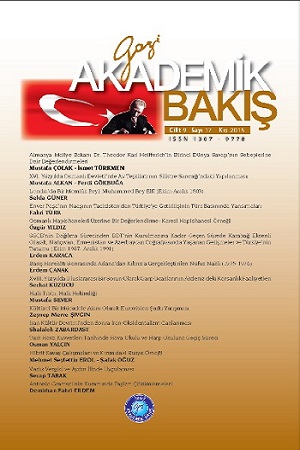Hybrid Warfare Studies and Russia’s Example in Crimea
Hybrid Warfare Studies and Russia’s Example in Crimea
Author(s): Mehmet Seyfettin ErolSubject(s): Geography, Regional studies, Military policy, Present Times (2010 - today), Peace and Conflict Studies
Published by: Gazi Akademik Bakış
Keywords: Warfare; Russia; Crimea; Irregular Warfare; Asymmetric War;
Summary/Abstract: Although Hybrid Warfare is an old concept, theoretical studies in the western countries mainly began in the post-Col War era, focusing on asymmetrical threats against conventional superiority of western countries such as USA or Israel. September 11th attacks and 2006 Israel-Lebanon war played important roles for the evolution of hybrid warfare theories. However, there has not any consensus among scholars on a exact or unique definition of hybrid warfare. Hybrid warfare became one of the main security issues for the West and especially for NATO after the Russia-Ukraine crisis. Russian military strategies, called “hybrid warfare” by the western countries, resulted in the successful annexation of Crimea and, caused a serious security problem for the West resulting important structural and functional changes for the military system of NATO. Russian activities, which have been based on surprise, ambiguity and deniability, presented a unique example for hybrid warfare studies.
Journal: Gazi Akademik Bakış
- Issue Year: 09/2015
- Issue No: 17
- Page Range: 261-277
- Page Count: 17
- Language: English

